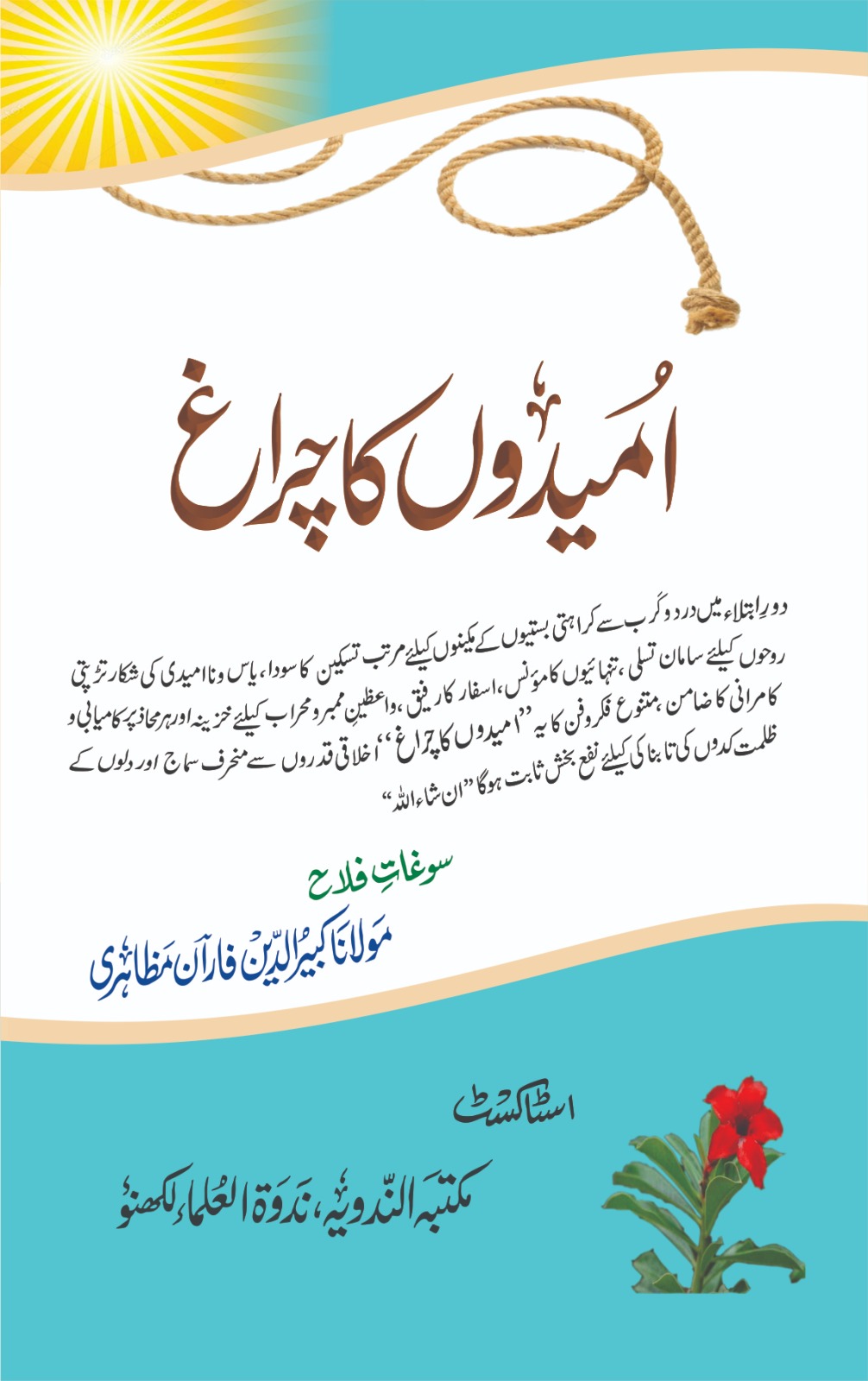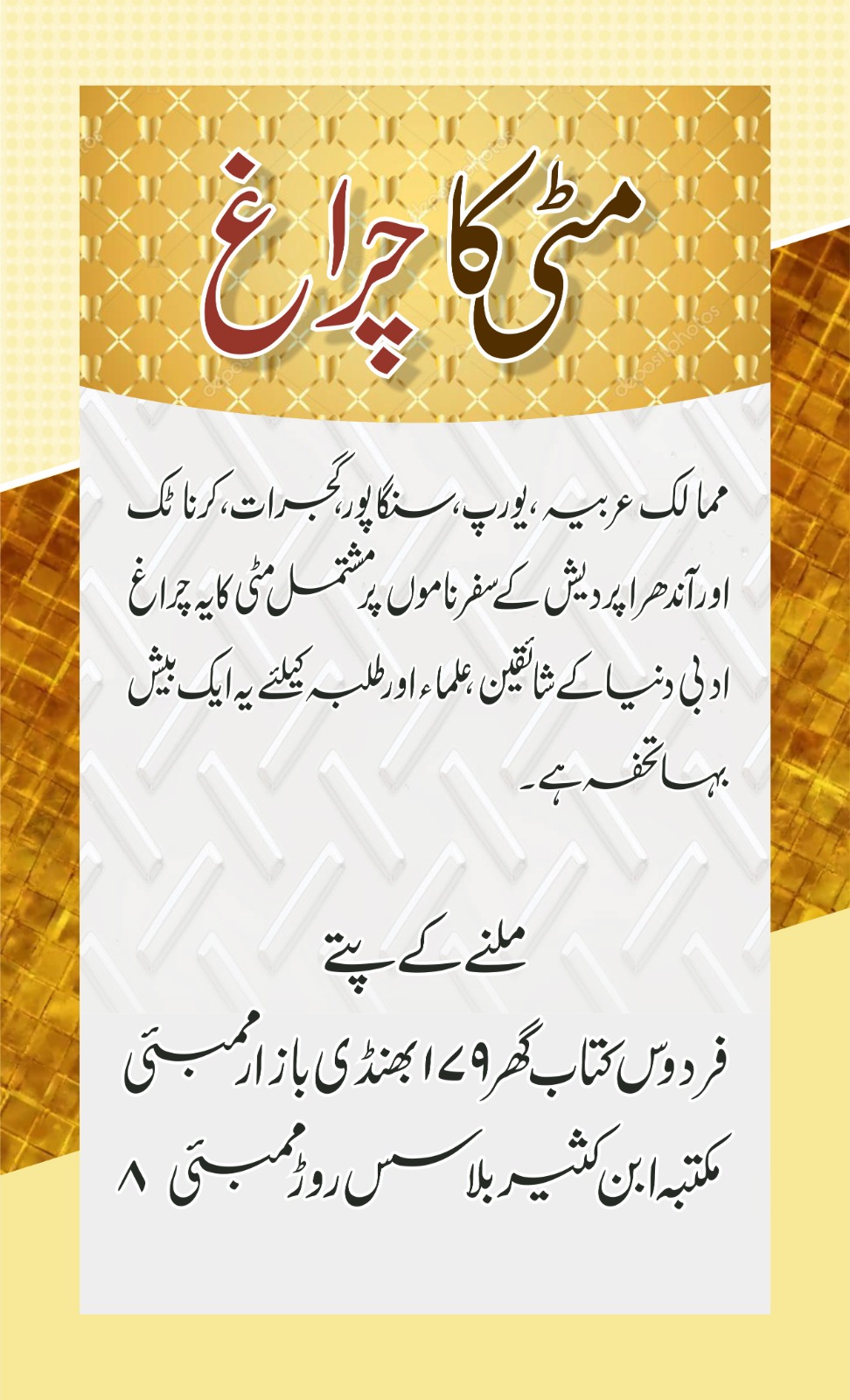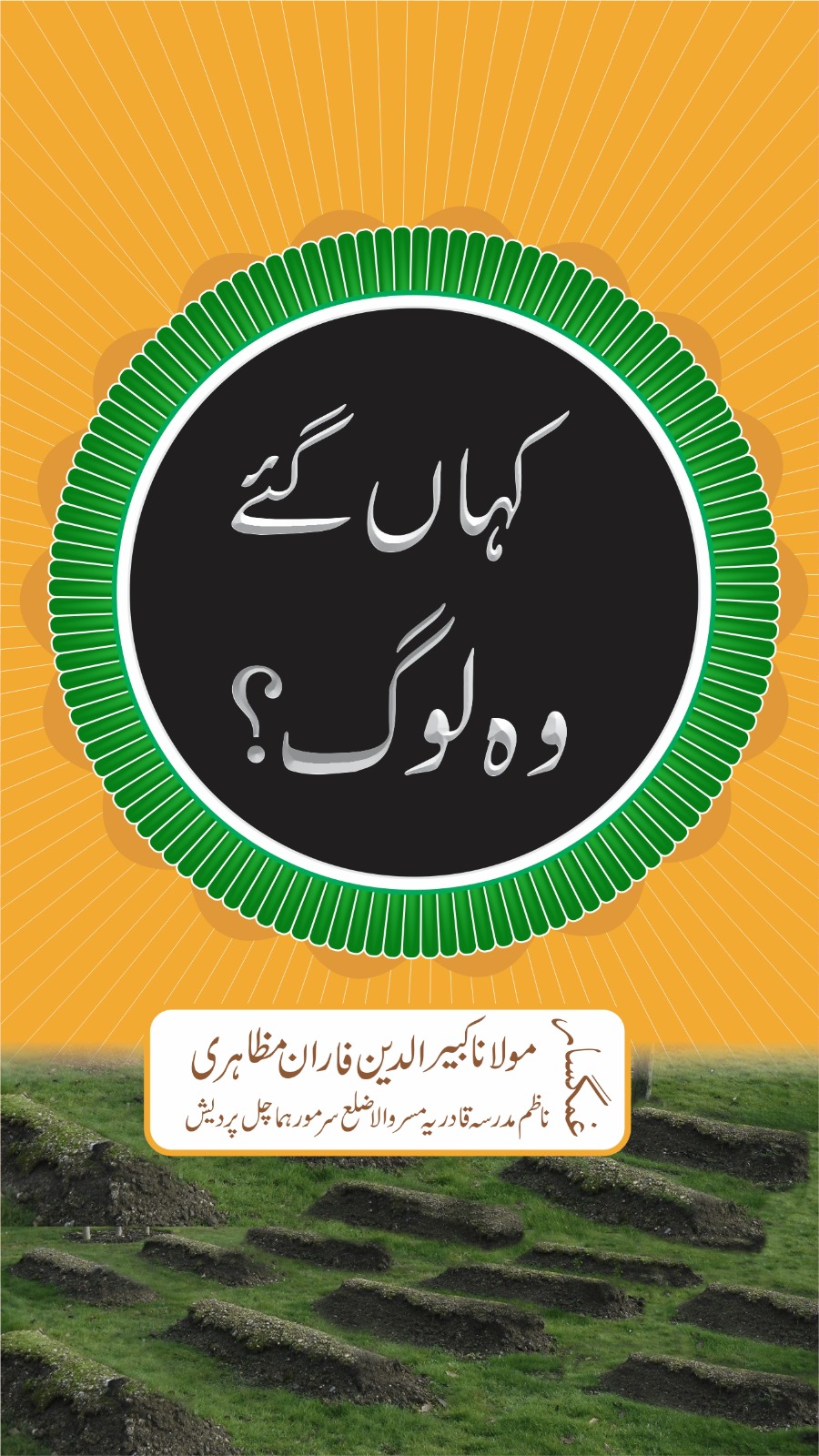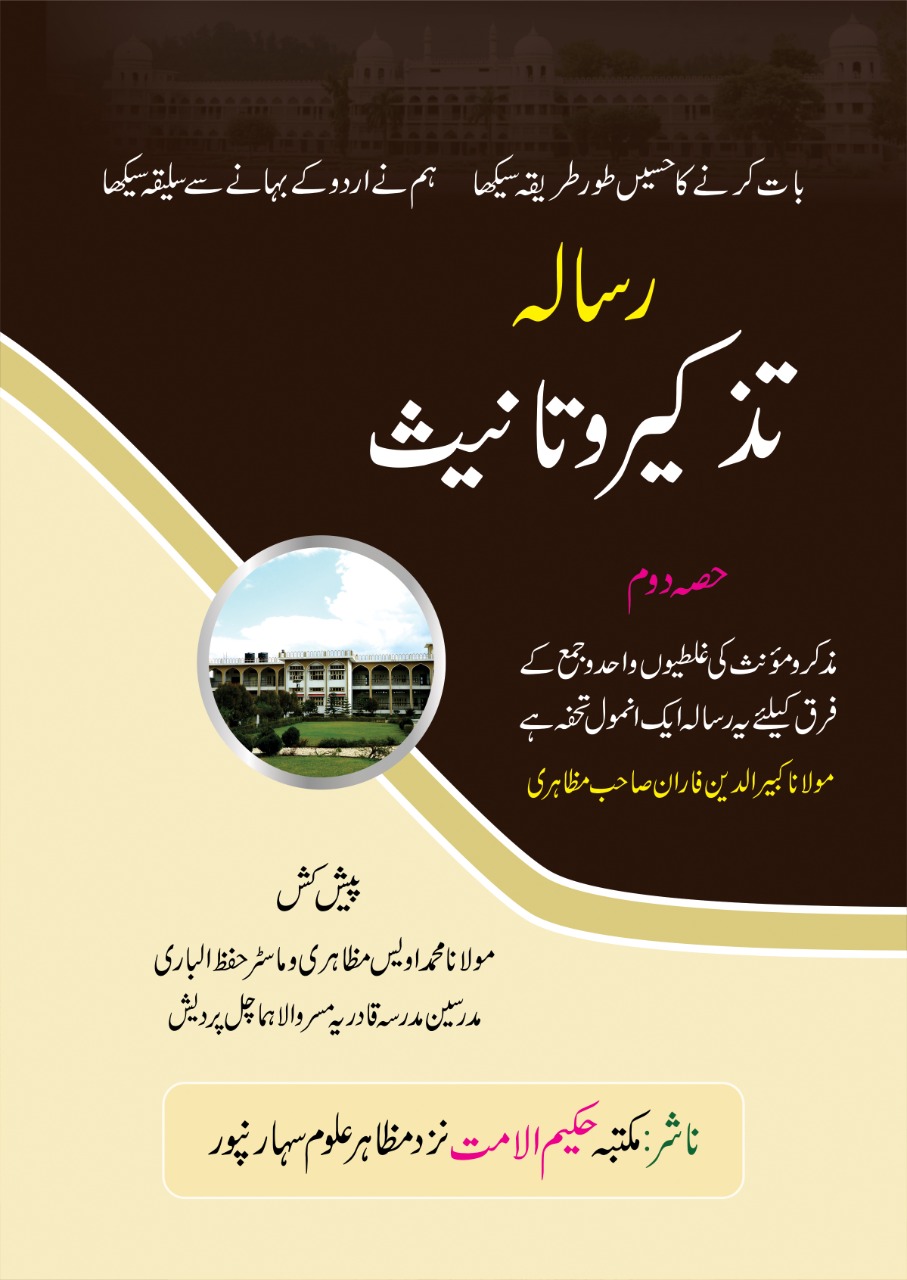ماہنامہ الفاران
Spending on the family on (Ashura) 10 Muharram
Shaykh (Mufti) Yusuf Shabbir, United Kingdom
This treatise is significant because traditionally scholars who have deemed the narration as ḥasan (agreeable) have relied upon the research of Ḥāfiẓ ʿIrāqī (d. 806/1404) who also authored a treatise on this subject which is available. Imam Ibn al-Qaṭṭān came almost two centuries before Ḥāfiẓ ʿIrāqī and shares a similar view. It is also significant because, along with discussing the authenticity and status of the narration, Imam Ibn al-Qaṭṭān has also discussed the meaning of the narration in a detailed manner, which perhaps cannot be found elsewhere. It is worth noting that Shaykh al-Ḥadīth Mawlānā Muḥammad Zakariyyā Kandhelwī (d. 1402/1982) asked his student Muḥaddith al-ʿAṣr Shaykh Muḥammad Yūnus Jownpūrī (d. 1438/2017) regarding this ḥadīth on at least three occasions (see al-Yawāqīt al-Ghāliyah, 1: 207, 326 and 2: 81, also see 2: 400). One of these questions relate to the apparent contradiction, how the expenditure on the family can be expanded whilst the family is fasting. Several answers have been provided by Shaykh, as outlined below. This treatise also sheds light on this issue indirectly, and Shaykh did not have access to this treatise at the time. Given the relevance of this treatise, I thought it would be useful to summarise the key points from the section regarding spending on the family on ʿĀshūrāʾ as the treatise also touches on other aspects of ʿĀshūrāʾ.
First, Imam Ibn al-Qaṭṭān cites the following ḥadīth of Jābir ibn ʿAbd Allāh (d. 78/697-8) (may Allah be pleased with him) attributing it to Ḥāfiẓ Ibn ʿAbd al-Barr (d. 463/1071) (see al-Istidhkār, 10: 140):
عن جابر قال سمعت رسول الله صلى الله عليه وسلم يقول: من وسع على نفسه وأهله يوم عاشوراء وسع الله عليه سائر سنته، قال جابر: جربناه فوجدناه كذلك، وقال أبو الزبير مثله، وقال شعبة مثله
Jābir (may Allah be pleased with him) narrates that I heard the messenger of Allah ﷺ say, “Whoever expands [his expenditure] on himself and his family on the day of ʿĀshūrāʾ (10th Muḥarram), Allah will (or may Allah) expand [his sustenance] on him for his entire year.” Jabir said, “We tested it and found it like this.” Abū al-Zubayr said the same, and Shuʿbah said the same.
Imam Ibn al-Qaṭṭan al-Fāsī suggests that the chain of this narration is ḥasan (agreeable) (p. 76), a view shared by Ḥāfiẓ ʿIrāqī (d. 806/1404) and many other scholars, although our teacher Shaykh Muḥammad Yūnus Jownpūrī (d. 1438/2017) disagrees. In fact, Ḥāfiẓ Ibn Ḥajar (d. 852/1449) has classified this narration of al-Istidhkār as munkar jiddan (extremely irregular) in Lisān al-Mīzān (6: 336). Nevertheless, there are different views regarding this as outlined in the aforementioned article.
Second, Imam Ibn al-Qaṭṭān suggests that the ḥadīth of Jābir (may Allah be pleased with him) is the only reliable ḥadīth on this issue. He adds that the ḥadīths of ʿAbd Allah ibn Masʿūd (d. 32/652-3), Abū Hurayrah (d. 57/676-7) and Abū Saʿīd al-Khudrī (d. 74/693-4) (may Allah be pleased with them) are not authentic, and outlines the reasons for this (p. 76-78).
Third, Imam Ibn al-Qaṭṭān mentions that the response in the ḥadīth could be a supplication that “may Allah expand”, or it could be information that “Allah will expand on him for his entire year” (p. 79).
Fourth, this reward and benefit is conditional upon making an intention and being a Muslim because both intention and Islam are prerequisites for good deeds (p. 80).
Fifth, will the expansion from Allah match the nature of the servant’s expansion on the family? In other words, if a person expands on his family, for example, via food, will this result in his food being expended, and likewise, if a person expands on his family, for example, via clothes, will this result in his clothes being expanded? Imam Ibn al-Qaṭṭān suggest that the ḥadīth is general and makes no reference to this matching. Thus, whichever method is used to expand on the family (whether it is through clothes, food or otherwise) the person would have acted upon the narration, and likewise, however the person is rewarded, the promise in the ḥadīth from Allah will be fulfilled (p. 86).
Sixth, a person should not think, based on the ḥadīth, that he will only be rewarded in this world for expanding on the family. Rather, he will also be rewarded in the hereafter for establishing the Sunnah (and spending on the family which is an act of charity). Imam Ibn al-Qaṭṭān mentions that there are many similar ḥadīths which mention certain benefits in the world for certain actions. However, this does not imply that they have no reward in the hereafter. The ḥadīth pertaining to enjoining kinship is one such example (p. 86) (Ṣaḥīḥ al-Bukhārī, 2067).
Seventh, why has ʿĀshūrāʾ (10th Muḥarram) been specified for this when a person can expand on his family throughout the year? Imam Ibn al-Qaṭṭān suggests that this is no different to how the supplication of a person is accepted in a particular hour on Friday, although the supplication can be accepted by Allah at all times subject to certain conditions. However, there are certain times (and days, nights, months and places) which have been blessed with special virtues through the wisdom of Allah Almighty. ʿĀshūrāʾ is no different (p. 86).
Eighth, if someone expands on other than his family members, will he attain the benefit mentioned in this ḥadīth? One possibility is that this is merely a form of charity and therefore it will not fall within the remit of this narration. However, Imam Ibn al-Qaṭṭān is inclined to the view that he will attain the benefit because it is more difficult for a person to spend on non-family members, whilst acknowledging that this is not definitive because the ḥadīth specifies family (p. 87-88).
Ninth, if a person with wider responsibilities such as a king (or an employer) expands on his people who are from one perspective ʿIyāl (dependants), will this fall within the remit of the narration? Imam Ibn al-Qaṭṭān suggest that the term ʿIyāl (dependants) has been transmitted in some other narrations other than the narration of Jābir (may Allah be pleased with him). However, the ḥadīth of Jābir (may Allah be pleased with him) uses the term ahl (family) which is the only authentic narration on this subject according to him, and the term ahl is more confined than ʿIyāl. In other words, the term ahl suggests that the ḥadīth is restricted to family members. However, he adds that if the term ʿIyāl was authentic, then it would include anyone who is dependent on him and this would include employees. He further adds that a person has been recommended to be benevolent towards his dependants and subordinates and there is a possibility, based on point number eight, that expanding on non-family members falls under the remit of this narration (p. 88).
Tenth, the term ahl (family) primarily includes the wife, children, parents and siblings. However, Imam Ibn al-Qaṭṭān suggests that it also includes uncles and aunts (p. 89).
Eleventh, if a woman spends on the family, does this fall within the remit of the narration? Imam Ibn al-Qaṭṭān suggests that according to the wording of the ḥadīth, this is unique to males. However, he acknowledges from a purposive perspective that males and females are equal in so far as the rights of wealth are concerned; whatever is necessary or recommended for the males in relation to wealth, the ruling is the same for the women (for example, Zakāh and optional Ṣadaqah, although it could be argued that the man has some additional responsibilities such as the obligation of supporting the family which the female does not) (p. 90). Although Imam Ibn al-Qaṭtān appears to suggest otherwise, the generality of the ḥadīth suggests that it is applicable to both males and females. In fact, from one perspective, a woman will receive greater reward for spending optionally on the family, a point alluded to by Imam Ibn al-Qaṭṭān in the context of spending on non-family members (see note eight above).
Twelfth, to what extent should a person expand on the family? Imam Ibn al-Qaṭṭān suggests that this depends on an individual’s financial circumstance. He quotes the following verse of the Qurʾān (65:7) “Let a wealthy person spend from his wealth, and he whose provision is restricted, let him spend from what Allah has given him. Allah does not charge a soul except [according to] what He has given it.” (p. 90).
Thirteenth, a beneficiary of another person’s benevolence should also expand on his family. For example, a father should expand on his son. The son should expand on his children. (Likewise, the son should expand on the parents as point number ten affirms). Imam Ibn al-Qaṭṭān adds that just as a husband expands on the wife, the wife should also expand on her husband (this should not be confused with point number eleven as that is related to a woman spending on other family members and not the husband).
Fourteenth, Imam Ibn al-Qaṭṭān raises a question alluded to in the introduction above. Is there not a contradiction between the desirability of fasting on ʿĀshūrāʾ and encouraging young children to do so as well and between expanding on the family, as they are unable to eat and drink? (p. 91) The manuscript ends here and no answer is provided in the published version.
1. One possible answer which can be derived from point number five is that expansion on the family is not confined to food. Indeed, Imam Ibn al-Qaṭṭān makes reference to three examples within the context of that particular point: Food, clothes and general generosity (perhaps referring to money and gifts) (p. 86).
2. When Shaykh al-Ḥadīth Mawlānā Muḥammad Zakariyyā Kandhelwī (d. 1402/1982) asked his student Muḥaddith al-ʿAṣr Shaykh Muḥammad Yūnus Jownpūrī (d. 1438/2017) regarding this apparent contradiction, he provided four possible answers (al-Yawāqīt al-Ghāliyah, 1: 207). One answer is that if food is intended then it could refer to preparations during the day (for example shopping and cooking), although the food is consumed after sunset.
3. Another possibility is that family in the ḥadīth refers to non-mature children who are not required to fast.
4. Another possibility Shaykh Muḥammad Yūnus Jownpūrī mentions is that expansion on the day of ʿĀshūrāʾ refers to the night. This is understood from a poem of Imam Ibn Ḥabīb al-Mālikī (d. 238/853) which has been cited by Ḥāfiẓ Suyuṭī (d. 911/1505) (al-Laʾālī al-Maṣnūʿah, 2:114) and ʿAllāmah Ibn ʿIrāq (d. 963/1555-6) (Tanzīh al-Sharīʿah, 2:158). However, Shaykh suggests that all the narrations on this subject mention the term yawm (day). It is worth noting at this juncture that Imam Ibn al-Qaṭṭān suggests that Imam Ibn Ḥayyān’s (d. 469/1076) attribution of this poem to Imam Ibn Ḥabīb al-Mālikī is erroneous (p. 79). However, the researcher of the treatise suggests that along with Imam Ibn Ḥayyān, Imam Abū Bakr ibn al-ʿArabī (d. 543/1148) has also attributed this poem to him (although it is possible that Imam Abū Bakr’s source was Imam Abū Ḥayyān). It was written in our article that Imam Ibn Ḥabīb al-Mālikī recommends expanding on the family on ʿĀshūrāʾ. This attribution needs to be examined in light of Imam Ibn al-Qaṭṭān’s assertion.
5. Our teacher Shaykh Muḥammad Yūnus Jownpūrī mentions a fourth possibility that expansion on the family refers to nafaqah (financial support), and the meaning of the ḥadīth is that a person should give (or allocate) the entire year’s nafaqah on this day and be generous.
These answers have been outlined for completion purposes and are dependent on the authenticity of the narration.
Finally, it is necessary to acknowledge the efforts of all those scholars who gather in Masjid al-Ḥarām in front of the blessed Kaʿbah during the last ten days of Ramaḍān and read from manuscripts and thereafter publish them. This invaluable effort began in 1419/1999 and has continued to this date. Over three hundred treatises on a range of subjects have been printed to date in twenty-four bulky volumes under the title Liqāʾ al-ʿAshr al-Awākhir bi al-Masjid al-Ḥarām. Most of these treatises have been published for the first time. My respected father Mufti Shabbīr Aḥmad also participated in some of the gatherings in Ramaḍān 1438. May Allah Almighty reward Shaykh Niẓām Yaʿqūbī and Shaykh Muḥammad ibn Nāṣir al-ʿAjmī for taking a lead on this project.
Jazakallahu Ahsanal Jaza
Headline
Writter / Editor
-
850
The Prophet Muhammad Sallallahu Alaihi Wasallam Apprehensions At The Time Of Storms
Bushra Nasrin, D/o Maulana Arshad Kabir Khaquaan, Diyaganj, Araria, Bihar
-
730
Spending on the family on (Ashura) 10 Muharram
Shaykh (Mufti) Yusuf Shabbir, United Kingdom
-
717
Qada of missed Salah whilst travelling
Shaykh (Mufti) Yusuf Shabbir, United Kingdom
-
701
Bleeding during pregnancy and after miscarriage
Shaykh (Mufti) Yusuf Shabbir, United Kingdom
-
717
Inheritance of grandmother if father passes away first
Shaykh (Mufti) Yusuf Shabbir, United Kingdom
-
746
Zakat on gifts returned to the ex-husband’s family
Shaykh (Mufti) Yusuf Shabbir, United Kingdom
-
669
The Afflictions of Hadhrat Khabbab Bin Alarat (R)
Bushra Nasrin, D/o Maulana Arshad Kabir Khaquaan Diyaganj, Araria, Bihar
-
671
Hadhrat Ammaar (R) and his parents
Bushra Nasrin, D/o Maulana Arshad Kabir Khaquaan Diyaganj, Araria, Bihar
-
518
तहकीक़ के बग़ैर जका़त की अदाइगी माल में बे बरकती का सबब।
मौलाना कबीरुद्दीन फारान मज़ाहिरी नाज़िम मदरसा कादरिया मिस्सरवाला हि0प्र0








